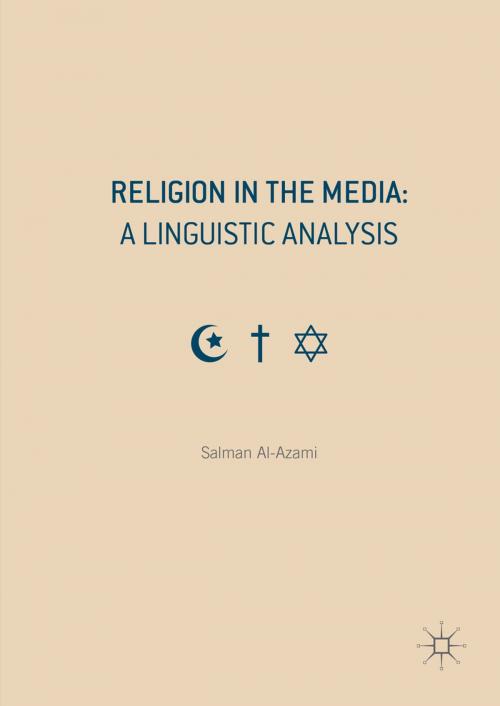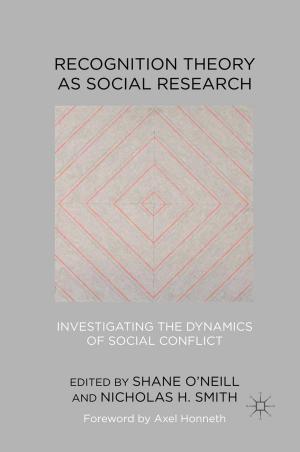Religion in the Media: A Linguistic Analysis
Nonfiction, Reference & Language, Language Arts, Linguistics, Social & Cultural Studies, Social Science| Author: | Salman Al-Azami | ISBN: | 9781137299734 |
| Publisher: | Palgrave Macmillan UK | Publication: | August 30, 2016 |
| Imprint: | Palgrave Macmillan | Language: | English |
| Author: | Salman Al-Azami |
| ISBN: | 9781137299734 |
| Publisher: | Palgrave Macmillan UK |
| Publication: | August 30, 2016 |
| Imprint: | Palgrave Macmillan |
| Language: | English |
This ground-breaking book takes an interdisciplinary approach to language, religion and media using an audience-response study. In this book, the author investigates how the three Abrahamic faiths - Christianity, Judaism and Islam - are represented in mainstream British media and analyses how members of each religious group and those with no religion receive those representations. Employing Critical Discourse Analysis, Al-Azami considers the way the media use their power of language to influence the audience’s perceptions of the three religions through newspaper articles, television documentaries and television dramas. Chapter 3 presents the results of an original investigation into the responses of members of the three religious groups and those with no religion when exposed to those same media materials. The author applies the encoding/decoding model and also considers people’s views in face-to-face interactions compared to comments on online newspapers. Comprehensive in its analysis, this book will be of interest to students of Linguistics, Media Studies, Religious Studies, and Journalism.
This ground-breaking book takes an interdisciplinary approach to language, religion and media using an audience-response study. In this book, the author investigates how the three Abrahamic faiths - Christianity, Judaism and Islam - are represented in mainstream British media and analyses how members of each religious group and those with no religion receive those representations. Employing Critical Discourse Analysis, Al-Azami considers the way the media use their power of language to influence the audience’s perceptions of the three religions through newspaper articles, television documentaries and television dramas. Chapter 3 presents the results of an original investigation into the responses of members of the three religious groups and those with no religion when exposed to those same media materials. The author applies the encoding/decoding model and also considers people’s views in face-to-face interactions compared to comments on online newspapers. Comprehensive in its analysis, this book will be of interest to students of Linguistics, Media Studies, Religious Studies, and Journalism.















